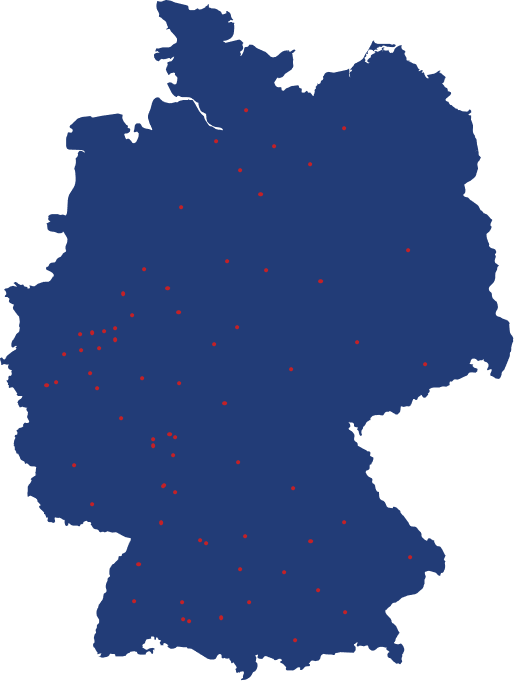NewPlacement AG
Your career booster for over 30 years
Your future. Your success. Our mission.

We support specialists and executives with strategic career advice and individual outplacement to help them find their next top job—discreetly, purposefully, and effectively.
Private customers & businesses
Individual
1:1 coaching
Successful on the market for 30 years
Received a termination notice or experiencing a career standstill?
From working with many of our clients, we know how it feels to have to prove yourself again on the job market after a long time.
Success in the job market is not a coincidence — it's a strategy!
Our consulting services, with a success rate of nearly 100%, are based on a unique combination of individual success factors.
“Our senior partners provide consulting services throughout Germany, Austria, Switzerland, France, and the Benelux countries. We operate in more than 60 locations and offer our consulting services in four languages: German, English, French, and Spanish.”

Many thousands of people have found new jobs with NewPlacement
Dr. Roland S. (52)
Head of Development, Chemical Industry
Ute N. (42)
Head of Human Resources, Group Subsidiary
Andreas T. (49)
Managing Director Mechanical Engineering
NewPlacement reduces your search time and significantly increases your success rate.
✓ Tailored application documents
✓ Optimization of social media profiles
✓ Preparing for job interviews

Get access to our network and the hidden job market
Exclusive access to the industry network & benefit from the coaches' contacts.
Hidden job market
The hidden job market comprises jobs that are not advertised publicly but are filled via headhunters.
Inverse headhunting
Inverse headhunting means that we search for suitable positions for you at companies.
Benefit from coaches with experience in business practice

Our coaches have worked for many years in various companies and are familiar with companies, people, and processes.
We are not only coaches with extensive consulting experience, but also bring our management experience from corporate practice to our consulting work.
Personal consultation at a location near you
Nationwide presence: Advice at a location near you
Boutique character: Exclusive service without mass processing
Individual support: Your personal advisor takes the time to understand your goals and challenges.

A strong partnership
For more than 30 years, our senior partners with management experience have been understanding people, companies, and careers.

How the collaboration works
and offer
collaboration
Navigation
StartseiteÜber NewPlacement
Unsere Leistungen
FAQ
Blog
Standorte
Referenzen
Wiki
Presse
Genderhinweis
Datenschutz
Impressum
Outplacement Standorte